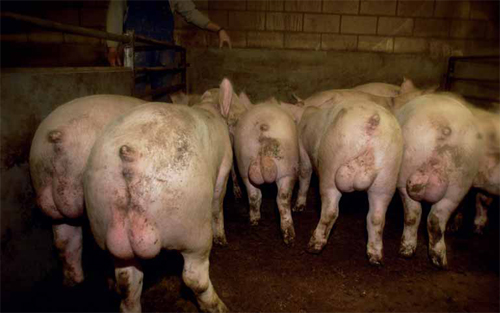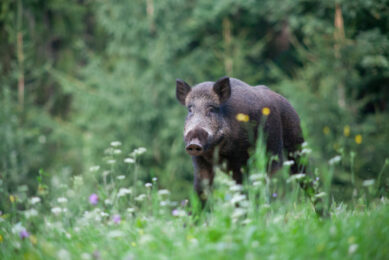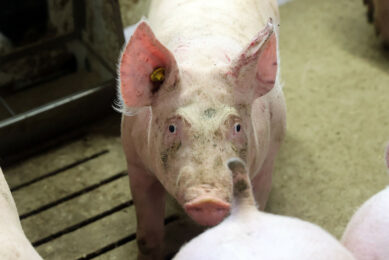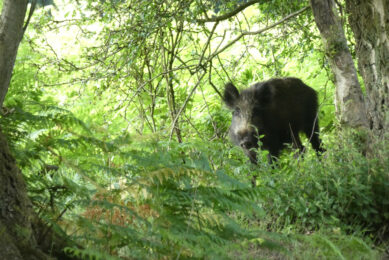Boars heading for 2018 – but the road is still long

If one thing became clear at the conference ‘Boars Heading For 2018’ – it has to be that they are not ‘heading’ in a straight line. The Amsterdam conference, held 30 November and 1 December 2011, showed that more coordination is required to have surgical castration banned in the European Union in 2018, and to have boar meat widely accepted.
Often, the speakers at the conference said how unique it had been in December 2010, in Brussels, Belgium. Stakeholders from virtually all parties in the European pork chain had voluntarily signed an agreement to ban surgical castration of male piglets by the year 2018. In addition, they agreed to use either anaesthetics or anaelgetics around castration as from 2012. This voluntary character – that was key about this ‘Declaration of Brussels’.
True, no official European legislation had pushed them in this direction. Three figures did that trick.
• The notion that 100 millionpigs are castrated every year in the EU – and that neither pork producers nor consumers are very happy with the practice.
• The estimate of 700,000 haof additional crop land being needed when raising barrows, as the feed efficiency in barrows is worse than those in boars.
• The percentage of pigs developing boar taint – latest estimates are around 3%, lower than what has often been thought.
About 150 stakeholders reconvened, on 30 November and 1 December 2011, in Amsterdam, the Netherlands this time. Main question: How to move on? Agreeing to abandon castration was great, but now answers are needed. A number of speakers came to the stage – no longer was there harmony, what could be heard was a wide spectrum of unanswered questions.
Policy officer for farm animals at the Eurogroup for Animals and one of the first to speak at the conference – what to think of Michel Courat? He reminded his audience why his organisation chose to sign the declaration, only to then change his tone of voice. He wondered, is the option to use only anaelgetics until 2012 an animal friendly solution? And why is there no room for the immunovaccination approach to be researched? Where is the commitment of the retail sector? Will the 2012 agreements all be maintained throughout Europe? Can we have an annual report on the progress? And last but not least – what about the 2018 deadline? Why did it have to be this late?
The last question is probably easiest to answer. Judging by the questions discussed at the two-day conference, it may come as no surprise that six remaining years may not even be long enough to find the appropriate answers.
Solutions
The three ‘country’ speakers (see boxes) confirmed the introducing words of Dr Gé Backus, Wageningen University, expert on the boar taint issue, and main driver behind the Amsterdam conference. He had already pointed out that each country in Europe is in its own stage of life cycle when it comes to castration. And since every country is in its own phase, each country is doing its own research towards castration issues, making trial outcomes virtually incomparable, said speaker Dr Maria Angels Oliver, from the Spanish research organisation IRTA, Barcelona. More coordination would therefore be very welcome. Answers to two questions will be pivotal here.
The first question is how to define boar taint. Components like skatole and androstenone are well known, but these components most probably do not tell the whole story. Some mention indole to be a third component, others however suggest that more components are yet to be identified. Some take the approach that boar taint has to be fully analysed in order to unravel its mysteries, others suggest that boar taint ought to be defined as anything that is detected as such by a human nose. Still, the definition question is of vital importance – once the problem is clearly defined, the search for targeted solutions can also be started.
The second question therefore is – how to find working strategies to deal with boar taint that will be widely accepted across Europe? A wide range of approaches could be heard, although most require much more research or are too expensive:
• Genetic selection
• Growing only female pigs
• Management, feeding and housing
• Immunovaccination
• Slaughterline detection (electronic nose?)
Subsidies
The setting up of reference methods for detection and measurement, as well as the development of breeding, feeding and management techniques, are two of the fields that will also be studied by the European Commission. Andrea Gavinelli, from the European Commission’s Directorate-General for Health and Consumers, said that the Commission, encouraged by the stakeholders’ own initiative, rewarded the boar taint development with a subsidy of €1.33 million in August 2011, to be used for further research.
Apart from the two topics mentioned, four more research fields will be addressed, like EU consumer acceptance; rapid detection methods for boar taint; an economic cost-benefit analysis and the development of a website related to the topic. These projects will be carried out on top of existing programmes like Alcasde and Pigcas.
Spontaneous
The conference attracted a wide variety of attendants, from pig breeding companies to meat processors and from press to animal welfare organisations. One important group, however, was underrepresented – those of the retailers. Present on behalf of the Dutch Food Retail Association (CBL), Marc Jansen was therefore invited to briefly mount the stage.
His spontaneous analysis was as down-to-earth as it was surprising – and put the purpose of the conference in another dimension: “In the Netherlands, we are trying to phase out castration by 2015. This means that boar meat is already being sold in the Netherlands. So far, I have not heard any complaints. Only when a topic like this would hit the eight-o’clock-news, then people may think, ‘Hey, there’s something funny with my meat’ and come and reclaim their money. I have the feeling that we are keeping a non-problem alive.”
The next conference on the progress of the 2018 initiative is scheduled for autumn 2012.











